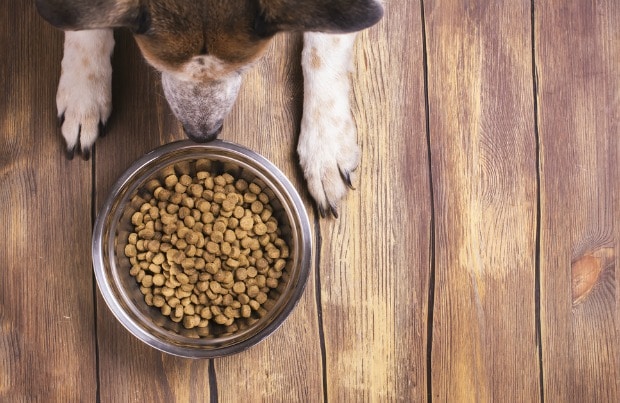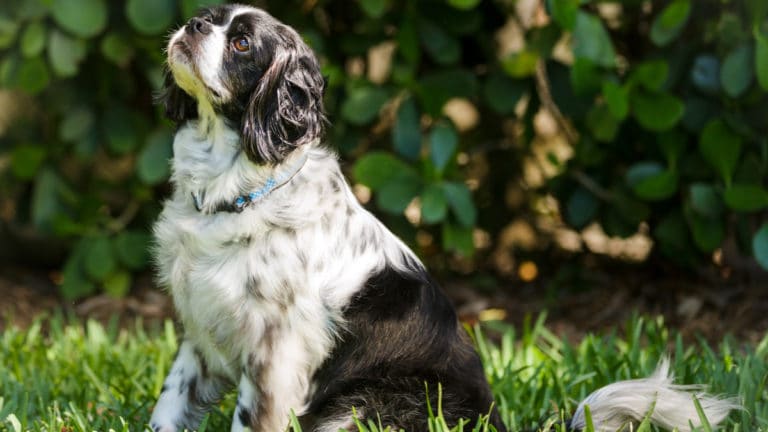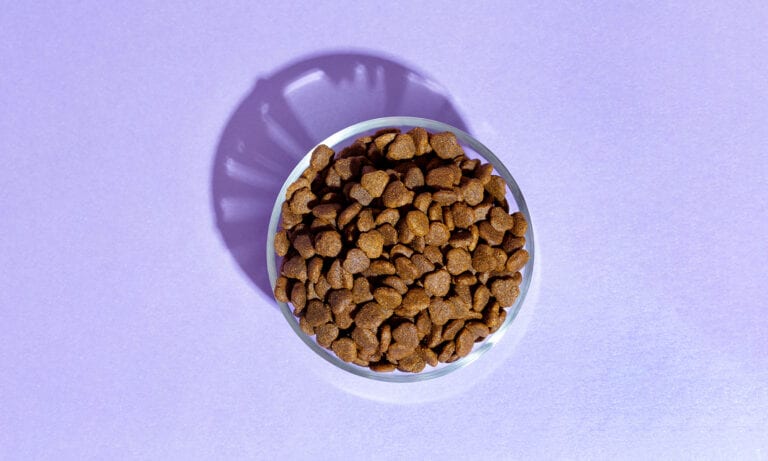Most dogs will eat anything and everything without a moment’s hesitation. On the other hand, there are a few dogs who just don’t show that much enthusiasm for dog food when it’s put in front of them. It can be concerning when your dog won’t eat food, turns his nose up and walks away.
Here are a few reasons why this might happen and what to do to help your dog get the nutrition he needs to maintain good health.
Reasons Why Your Dog Won't Eat
You should consult with your veterinarian to determine why your dog won't eat their food.
Underlying Health Issues
If you find that your dog won’t eat food, the first thing you need to do is make sure your dog is in good general health. If your dog has always been a good eater and suddenly develops a diminished appetite, this is something to be concerned about immediately. If he has lost weight recently or develops vomiting or diarrhea as well, it is time to make a visit to the veterinarian.
Problems with teeth and/or problems in the mouth can make eating difficult for even the hungriest of dogs. Check the mouth for sores, growths, bad teeth or foreign objects that might be causing pain or discomfort for your dog. This would be another cause to visit the veterinarian for an examination. Once any problems have been diagnosed and treated, your dog’s appetite should return quickly.
Bad Eating Habits
If health problems are not an issue, you might need to consider that your dog has acquired some bad habits. Feeding your dog extra treats during the day that are tastier and more interesting than his normal dry diet can cause a finicky appetite to develop over time. If there are many people in the household that like to give your dog extra treats or are slipping table scraps to him, it can lead to some serious issues, including obesity.
In cases of excessive table scrap feeding, some dogs will tend to hold out until they are given something that just tastes better than dry dog food. Here is where you need to make some changes and stop reinforcing the bad behavior. Table scraps and excessive treats only cause weight gain and don’t provide balanced nutrition. Your dog needs to eat nutritionally-balanced food in proper amounts every day to maintain health. So, in this case, making changes is vital.
Stop feeding extra foods and dog treats and stick to a daily scheduled feeding routine. It can be hard, especially when your dog is giving you the “Please feed me” eyes, but stick to your guns. Put down the proper amount of food at a regular time each day and wait. If your dog won’t eat the food, try again the next day. It won’t hurt for a day or two to go by without him eating, as long as he’s in good health and not a very young animal. This will help encourage his appetite for his dog food, and after a short while he should learn that this food is the only food he will be getting every day.
Poor Dog Food Choices
In some cases, dogs aren’t hungry because they are fed too much. If your dog is a normal weight (check with your veterinarian), has good coat quality and has high energy levels but doesn’t eat very much, then check how much you are feeding him. It could be too much! Your veterinarian or an online calorie calculator are both good resources for knowing how much to feed your dog.
Also, check the dog food you are offering to make sure it’s not spoiled or out of date. This may be a reason why your dog suddenly doesn’t want to eat his food.
Make sure the food you are offering is safe, nutritious and consistent. Don’t keep changing the food constantly because this can upset your dog’s digestive system and cause nausea which can lead to food aversions. If you do want to try a different flavor or dog food brand, make the switch gradually, and mix some of the old food with the new food over 3-4 days until he is only eating all new food. A new flavor might just be enough to stimulate appetite.
Behavioral Reasons
Your dog may be responding to your behavioral cues during mealtimes. Or he may be enjoying the attention given when he doesn’t eat his food, reinforcing the bad behavior. By keeping feeding time positive, the overall experience will also provide positive reinforcement for your dog. Praise your dog when he eats his food, and give him attention only after the meal is gone.
If you have other dogs, then your dog may be experiencing anxiety around meals because of bullying or competition. Staying out of the area while your dog eats and giving him a quiet, safe place to eat alone, away from distractions or competition from other pets, may be helpful. Offer his food for a short period of time, and then take it away. This will teach your dog to eat at certain regular times and will provide a comforting routine that the dog can rely on.
How to Get a Dog to Eat
If you find that your dog is healthy and is being served a high-quality food in the proper amounts while in a positive environment, but you still can’t get your dog to eat dry food no matter what, there are a few tricks to try that might entice him to eat.
You can try another brand of dog food or add a topper to your dog’s normal kibble. You can use chicken broth as a topper by mixing it in your dog’s normal food. If this doesn’t work, then enlist the help of your local veterinarian.
Temporarily out of stock
Another idea is to take your dog for a good walk before mealtime, which can also help increase appetite. If you can schedule a daily walk around a regular feeding time, this will help your dog to associate the walk with the upcoming mealtime and may improve his appetite.
Above all, be patient with your dog, and watch him closely for signs of illness. Work with your veterinarian or a certified dog behaviorist if you are concerned about his health or behavior. Time, self-discipline and consistency will do much to cure a finicky eater. Eventually, “My dog won’t eat” will become a thing of the past!
Choosing the Right Dog Food
Share:













